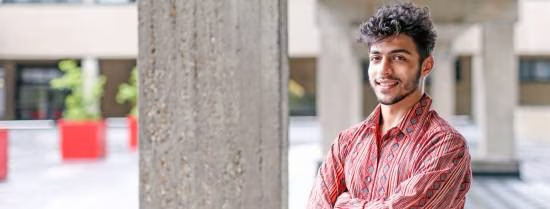Teachers about the programme:
Dr. Katharina Bauer
Philosophy begins in wonder, but it does not stop in wonder.
Only if you are puzzled and perplexed you will start to ask philosophical questions, you will start to discuss with others about things that might have seemed to be self-evident at first sight, and you will start to think critically about given worldviews and opinions. I regard it as one of my main tasks as a teacher for philosophy to make my students wonder, to irritate their perceptions, convictions, and beliefs. Still, I also teach my students to develop sound arguments, give good reasons for their positions, based on the methods and concepts of philosophical thinking. I want to provide them with a sophisticated knowledge of the philosophical tradition and the state of the art of current philosophical discussions. They shall be enabled to relate academic discussions to the most urgent problems and important debates in contemporary society and to translate and transfer philosophical perspectives into public debates.
Teaching in the programme “Philosophy Now” is a pleasure and a most welcome challenge for me. It offers the opportunity to discuss pressing issues, ethical and societal problems of these crisis-ridden times with small groups of highly motivated students. Philosophically thinking about the now means thinking for the future – based on a profound understanding of underlying philosophical problems, concepts, and theories from the present and the past.
Dr. Yogi Hendlin
We are living in liminal times. The age of reason has become eclipsed by the age of the spectacle, and the crisis. How to best navigate and improvise in these times without a rulebook? How can we best prepare ourselves and our society to reflect on history and become resilient to the anthropogenic black swans? Philosophy in the 21st century calls us to come back to our senses, gain humility through knowledge of our ecological porosity, and let go of the mechanical age of control. Serendipity will guide us, if we dare to discipline ourselves with the mastery of a new phronesis.
Suggested reading:
Abram, David. 1996. The Spell of the Sensuous. New York: Vintage Books.
Dr. Maren Wehrle
Why philosophy? Philosophy would be a rather counter-intuitive exercise for anyone seeking security and definitive answers. In its asking of probing questions about self and society, philosophy at best leaves us unsettled. If security and answers is what we need in times of climate crises, pandemics, technological revolutions, and social division, then philosophy might not be the solution. So, why insist on philosophy now? Through philosophical thinking, we are invited to doubt but also to marvel at ourselves and the world. Through reading philosophy, we become aware of the limits to our thinking, and of our vulnerabilities, including our dependence on the world and other people. And, precisely in this fragility, which lies at the heart of every subjectivity and identity, we find great opportunity. Instead of judging self-righteously and hastily, we might pause, ask questions, challenge presumptions, and thereby be responsive to different voices, perspectives, and needs.
For modern philosophy, the subject was the secure starting point of knowledge. Is this still true? Although a complete transparent and autonomous subject proved to be a rational illusion, subjectivity still is at the heart of every critique, not despite its contingency and dependency, but precisely because of it. Only an embodied, situated and thus vulnerable subject can care about itself and others. It is therefore responsive and able to take responsibility beyond the limits of its own subjectivity. This would indeed be the philosophy we need now.
Suggested reading:
- Merleau-Ponty, The Phenomenology of Perception, trans. D. A. Landes. New York: Routledge 2012.
Prof. dr. Ruud Welten
I know who I am. I think. And because I think I exist. But what makes you think that the "I" is the center of everything? Isn't that "I" the result of speaking rather than the basis of speaking and thinking? Sigmund Freud's psychoanalysis has sparked an earthquake in our thinking about the "I," which remains to this day. Psychoanalysis understands the "I" from an unconscious and not as a unit from which reality is constructed by means of logic and reason. In the course we will discuss this line of thinking from Freud, via Jacques Lacan and Slavoj Žižek, to Julia Kristeva.
Prof. dr. Wiep van Bunge
Philosophy Now is an attempt to demonstrate what Philosophy has to offer to anyone seriously interested in the Now. Over the past few decades I have concentrated on early modern philosophers such as Descartes, Spinoza, and Bayle, as well as on a host of perfectly obscure Dutch authors, as I was working on the history of philosophy in the Dutch Republic. Recently, I have turned toward the various ways into which European authors throughout history have tried to account for human diversity. So I now teach the course "Roots of Racism: Facing Foreigners from Montaigne to Kant" and as my fascination with the subject continues, I am wondering whether in the future the nineteenth and early twentieth century shouldn't be included, horrific as many of the sources involved are.
Suggested reading:
- Michael O. Hardimon, Rethinking Race. The Case for Deflationary Realism (Harvard UP, 2017).
- Justin H. Smith, Nature, Human Nature, and Human Difference. Race in Early Modern Philosophy (Princeton UP, 2015).
